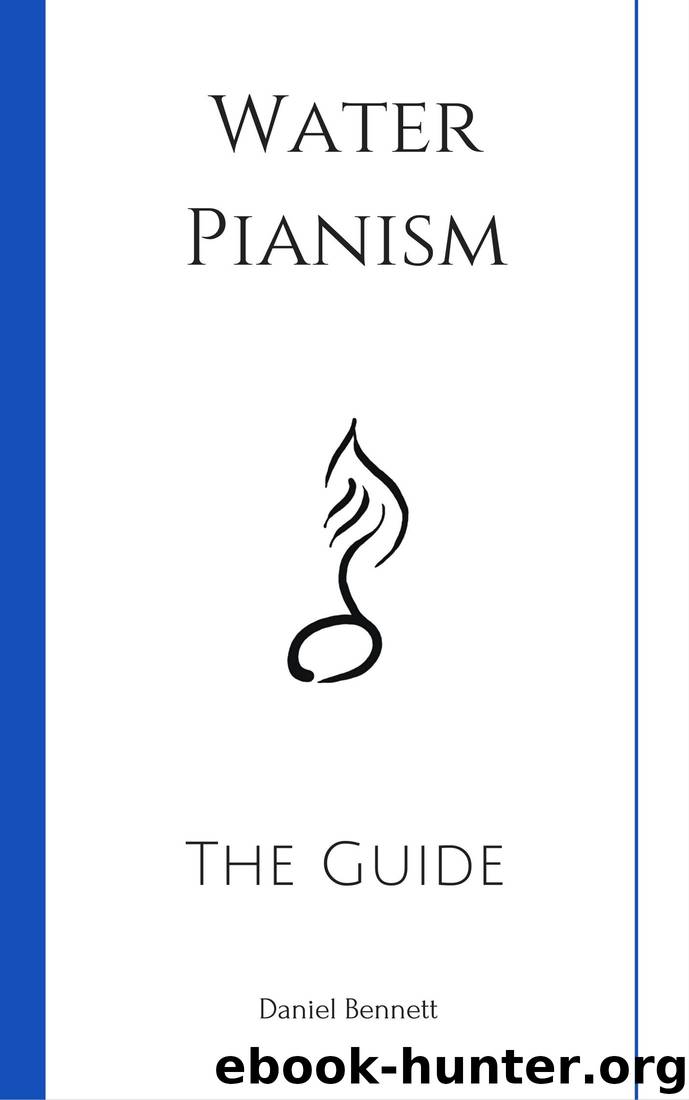Water Pianism: The Guide by Daniel Bennett

Author:Daniel Bennett [Bennett, Daniel]
Language: eng
Format: azw3, epub
Published: 2016-03-15T16:00:00+00:00
Study 10 – On Knowledge & Creativity
There is a distinctive difference between what one knows and what one is able to do naturally with that knowledge. It is important to be aware of this significant difference because it helps to understand the notion that knowledge does not affect the natural Self during periods of creativity.
Given the sheer amount of knowledge available, it may seem quite unusual to suggest or difficult to believe that one is unable to improve their creativity by studying such easy-to-access content.
The reason one demands knowledge in the belief that it will improve creativity is in part down to the obsession of education systems to force their students to memorise text book after text book, especially for exams, from an early age without having offered the freedom to study what is naturally enjoyed or letting the student have any say in how they learn most naturally.
Consider the infamous teaching which prescribes that a fish should not be judged on its ability to climb a tree.
Awareness of, focus on and development of natural abilities are typically so far from being paramount that it should be little wonder why many new pianists, especially adults, automatically expect a book with which to learn theory and make perceived progress and who, in some way, even hope that it may replace the need for any natural Self involvement at all.
By this, it is assumed that the book tells the individual what they must know, when they must know it, how they must play and what is expected of them at various stages of non-natural development. It is even common to be informed how many days or weeks it should take to achieve something!
Consider the following statement: Methods are for some, Philosophy is for all.
Methods are specifically devised ways, either by an individual or institution, of learning to play the piano and involve getting used to a particular and specific way of, amongst other teachings, holding the hand and positioning the fingers as deemed ‘correct’ by the method.
One is obliged to adhere to the requirements of the method at all times but it must be noted that content varies from method to method, hence why methods are for some; one may find agreement with the content of one method but not another. What works for one does not work for another.
Sometimes, one changes to a different method book or personal teacher since there may have been difficulties or issues with a previous one.
This constant seeking of a perfect method or teacher is incredibly time-wasting, detrimental to natural progress and unfortunately demonstrates great ignorance of the workings of the natural Self.
Knowledge, to the Water Pianist, is understood to be words about words or a two-dimensional representation of a three-dimensional concept and does not have any impact on inherent ability, nor its development, in any way.
Just because one has, for example, internalised all the notes of all twelve major scales, does not determine how the fingers are naturally able to execute them without hesitation, nor will such knowledge determine one’s natural touch or increase rapidity.
Download
This site does not store any files on its server. We only index and link to content provided by other sites. Please contact the content providers to delete copyright contents if any and email us, we'll remove relevant links or contents immediately.
The Goal (Off-Campus #4) by Elle Kennedy(13640)
Kathy Andrews Collection by Kathy Andrews(11795)
Diary of a Player by Brad Paisley(7539)
What Does This Button Do? by Bruce Dickinson(6187)
Assassin’s Fate by Robin Hobb(6186)
Big Little Lies by Liane Moriarty(5773)
Altered Sensations by David Pantalony(5088)
Pale Blue Dot by Carl Sagan(4984)
Sticky Fingers by Joe Hagan(4174)
The Death of the Heart by Elizabeth Bowen(3596)
The Heroin Diaries by Nikki Sixx(3534)
Beneath These Shadows by Meghan March(3291)
Confessions of a Video Vixen by Karrine Steffans(3291)
How Music Works by David Byrne(3247)
The Help by Kathryn Stockett(3130)
Jam by Jam (epub)(3069)
Harry Potter 4 - Harry Potter and The Goblet of Fire by J.K.Rowling(3047)
Computational Linguistics and Intelligent Text Processing: 20th International Conference, CICLing 2019 La Rochelle, France, April 7â13, 2019 Revised Selected Papers, Part I by Alexander Gelbukh(2975)
Strange Fascination: David Bowie: The Definitive Story by David Buckley(2848)
